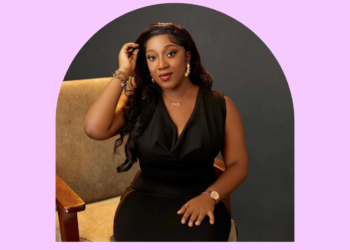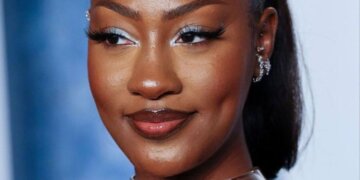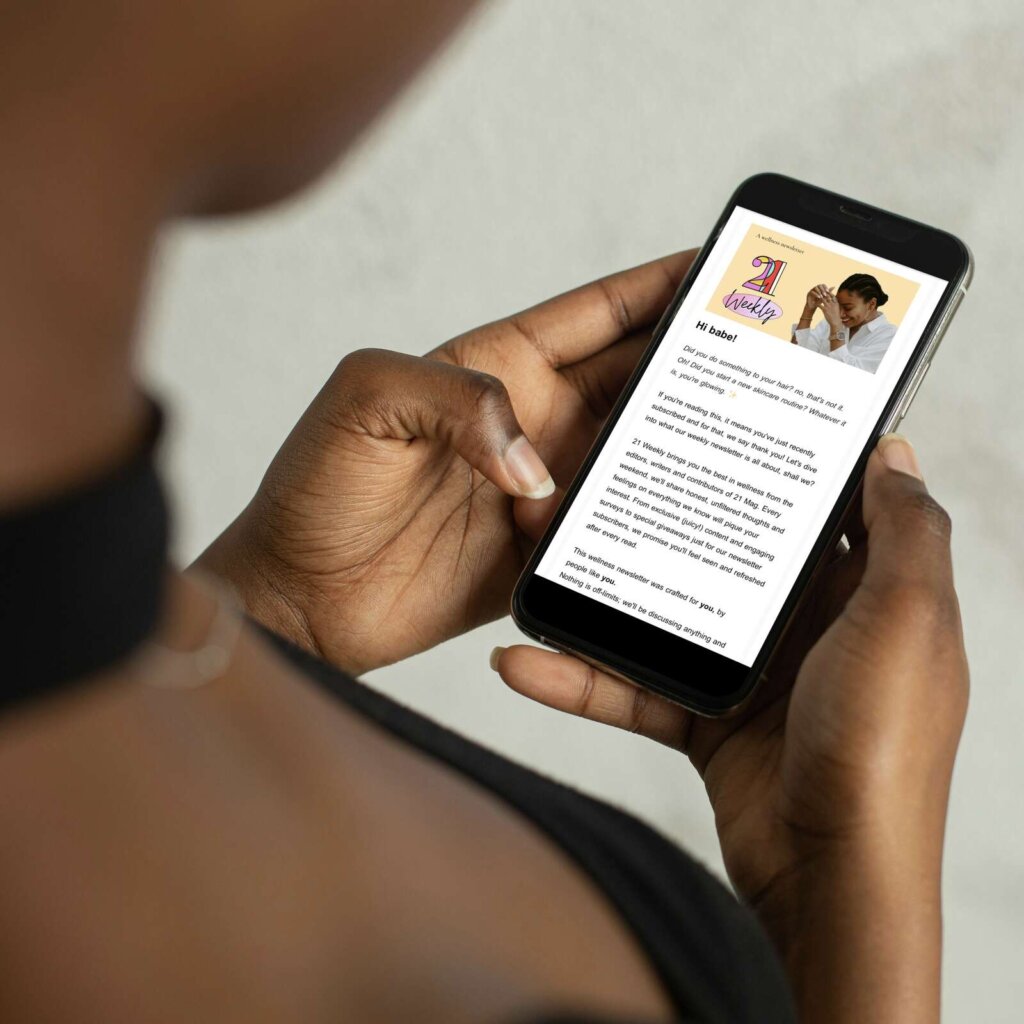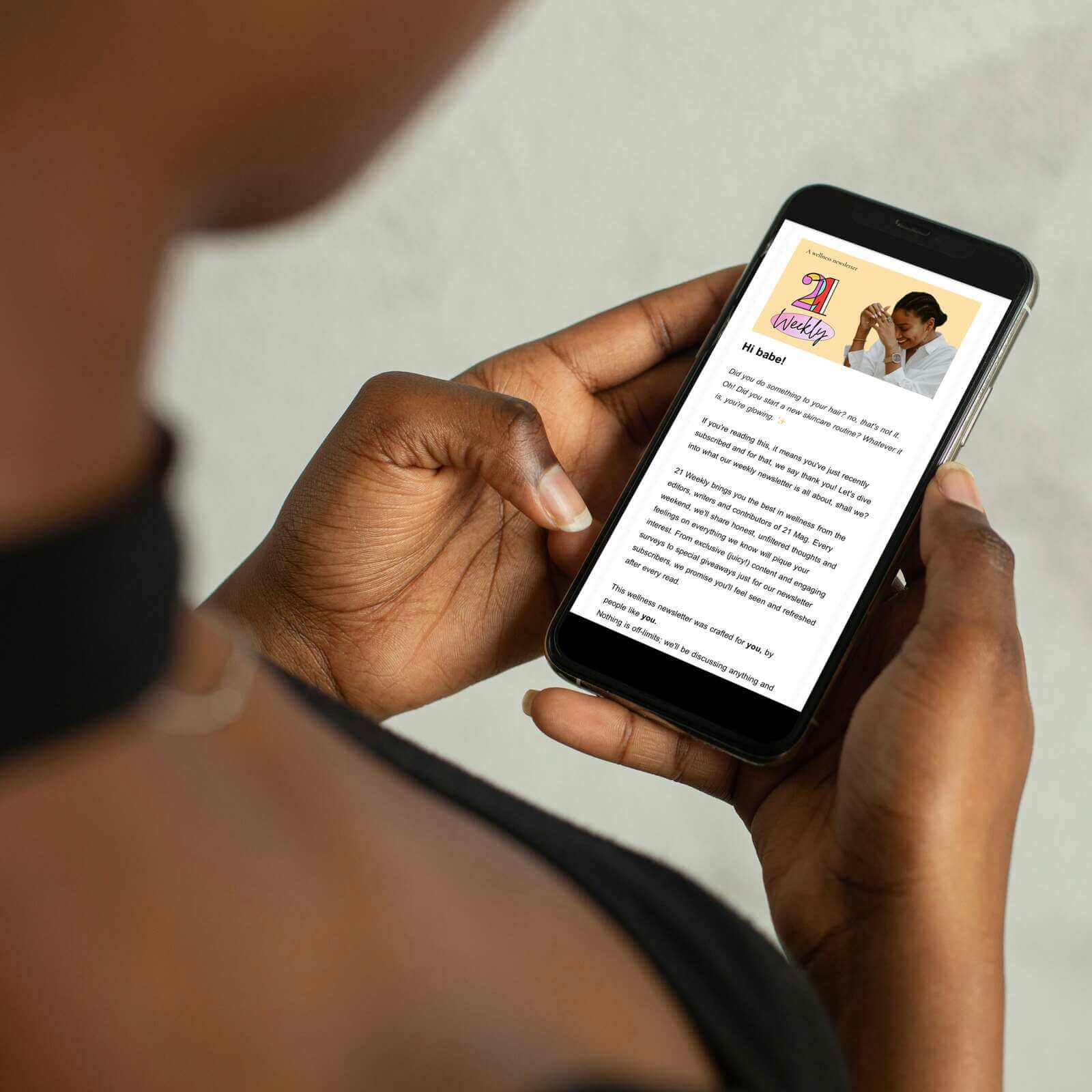No products in the cart.
Women-In-Literature: 7 Perfect Reads For Women’s Month
In Women’s Month, it’s essential to celebrate the diverse voices and experiences that enrich the literary landscape. This curated list of seven books encapsulates the essence of womanhood, exploring themes of feminism, sisterhood, resilience, queerness and identity. From powerful manifestos to gripping narratives, poignant tales and empowering poetry, these books offer profound insights and riveting storytelling that resonate deeply with readers across the world.
Be inspired by the resilience, bravery and strength of female characters written into life by Nigerian women, for women, by delving into the world of literature where women‘s voices take centre stage, inspiring and empowering us.

Dear Ijeawele by Chimamanda Ngozi Adichie
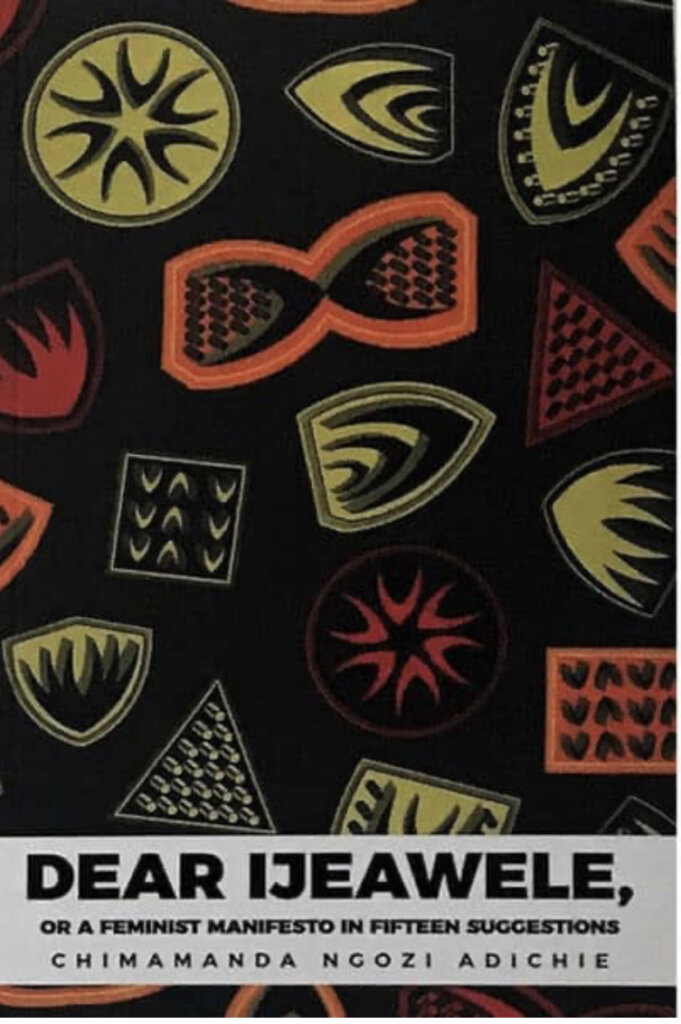
Choice quote: “The knowledge of cooking does not come pre-installed in a vagina. Cooking is learned.”
There’s a reason this nonfiction is also titled “A Feminist Manifesto in Fifteen Suggestions.” It is short, sweet, and ridiculously revolutionary. It was written in response to a friend’s request to Adichie, asking the renowned author and feminist for tips on how to raise her daughter as a feminist. Through the publication of this book, I can boldly say that Adichie absolutely honoured her friend’s request. Thank you, Ijeaawele, whoever you are.
In a simple and accessible style, the author discusses feminism, the catastrophic consequence of likeability, periods, gender roles, privilege, sexism, racism, self-worth, and so much more. She does it in such a way that commands your full attention. She questions the effect of society when we teach girls to aspire to marriage but don’t impose the same beliefs on men—although she cautions that we shouldn’t because such teachings are problematic. Perhaps it is the fact that Adichie offers hard-hitting lessons drawing from her own experiences as a woman navigating a male-centred world. This slim book, packed with so much wisdom, is one of the biggest literary F Us to systemic patriarchy.
If you can’t get into feminist theory and scholarly works, this is one of the easiest ways to ingrain the concept of feminism in you. The best part of this powerful book is that it will have practical answers to the sometimes elusive question, “How can I be and live like a feminist in a patriarchal system?”
Girl, Woman, Other by Bernadine Evaristo

Choice quote: “Megan should have been grateful and accepted her cute status. What girl doesn’t want to be told how lovely she is, how special? Except it felt wrong. Even at a young age, something in her realized that her prettiness was supposed to make her compliant, and when she wasn’t when she rebelled, she was letting down all those invested in her being adorable”
How does one tell a tale of 12 women, who come from different worlds, living completely different realities, yet somehow find themselves connected by friendship, love, ancestry or some other bond? In “Girl, Woman, Other”, Evaristo presents an intricately woven prose that relatably explores everything from sexuality to feminism to sisterhood through an eclectic and diverse spectrum of black women’s voices, all vastly disparate in age, cultural background, career and social class. Yet, their lives are intertwined in numerous ways—from family to friends to chance acquaintances.
The humanity of the characters is palpable. Their separate stories are used not only to highlight the multifacetedness of women but also to draw attention to parallels and unifying factors.
It’s an excellent piece of fiction with a peculiar writing style, give it a shot, it’s worth it!
The Second Class Citizen by Buchi Emecheta

Choice quote: “Typical Igbo psychology; men never do wrong, only the women; they have to beg for forgiveness because they are bought, paid for and must remain like that- silent, obedient slaves.”
This book is Buchi Emecheta’s semi-auto-biographical account of her emigration from Nigeria to London. With raw honesty and palpable poignancy, through the character “Adah”, Emecheta depicts the struggle that comes with being partnered with a misogynistic and cheating spouse, being a young low-income mom and dealing with racism that strips you of your dignity.
From “The Second Class Citizen”, you can glean that growing up in Nigeria, Emecheta is taught—like many girls in today’s modern world and even more women back in the 20th century— that she is a second-class citizen to her husband. Hence, his needs are to be prioritized over hers, always. Her primary role is to have as many children for him as possible and take care of their home. One thing’s for sure: as you flip through the pages of this book, you will be enraged, wishing you could appear in Emecheta’s story and tell this obviously clever woman to stand up.
Through Adah’s struggles for education, career advancement, and independence, Emecheta’s “Second Class Citizen” reminds us, in this Women’s Month, of the ongoing struggle for gender equality and the importance of not only amplifying women’s voices but also honouring the resilience of women who, though historically marginalized, resolved not to be relegated to the sidelines of society.
Emecheta remains a beacon of light to so many women around the world. How she managed to raise five children (she had her fifth child at the age of 22) in a foreign country with a terrible husband while still being one of the most prolific writers of her generation remains a huge mystery to me. Maybe, truly, women can do it all.
The Girl With the Louding Voice by Abi Dare

Choice Quote: “My mama say education will give me a voice. I want more than just a voice, Ms. Tia. I want a louding voice,” I say. “I want to enter a room and people will hear me even before I open my mouth to be speaking. I want to live in this life and help many people so that when I grow old and die, I will still be living through the people I am helping.”
Adunni has lost her mother, whom she adores. Now, her father wants to marry her off as the third wife to a man as old as him. Adunni is not happy about this. Her one dream in life is to return to school and develop her ”louding voice.” After enduring weeks of the sham marriage, Adunni flees from her husband’s house, only to end up as a house maid to a rich, wicked Nigerian woman and her husband.
This humorous yet moving story is written mostly in the broken English of its protagonist, 14-year-old Adunni. Readers follow her story from tragedy to triumph, hearing her kind, inquisitive voice not only with our ears but with our hearts. She is such a lovable character, and her tale will leave an indelible imprint on your soul long after you’ve finished the book.
If you’re looking for a heartwarming read, “The Girl With the Louding Voice” will make you laugh and cry.
The Son of the House by Cheluchi Onyemelukwe

Choice quote: “Women who were foolish did not survive long in the world of men”
“Son of the House” begins with an unsettling scenario of two women, Julie and Nwabalu, kidnapped and confined to a small, cramped room. As they grapple with their dire situation, Nwabulu proposes a way to pass the time: sharing their life stories. However, Julie hesitates, completely aware of the inevitable tragic ending that comes with recounting her past.
Nwabulu, as an orphaned teen who escapes her wicked stepmother, is infatuated by the son of her housemaid friend’s madam, gets pregnant for him, and is forced to start life back from scratch with a baby in tow. Julie, more privileged, is the other woman to a married man, living happily and independently. But when she hears her mother’s dying wish, her priorities begin to shift. Though these women come from vastly different backgrounds and have vastly different experiences, by telling each other their stories, they learn that they have more in common than either could ever have imagined. Readers also begin to realize the significance of the title of this novel: these women’s lives revolve around the elevation of and presence of ‘the son of the house’.
We go back to the 1970s and 1980s to witness the lives of these women, and through their lives, readers are able to explore the intersection between class and gender, especially in a Nigerian setting. This character-driven story explores womanhood, motherhood, friendship, and the patriarchy throughout years of changing culture in Nigeria, making it an excellent read for Women’s Month.
Questions by Ada by Ijeoma Umebinyuo
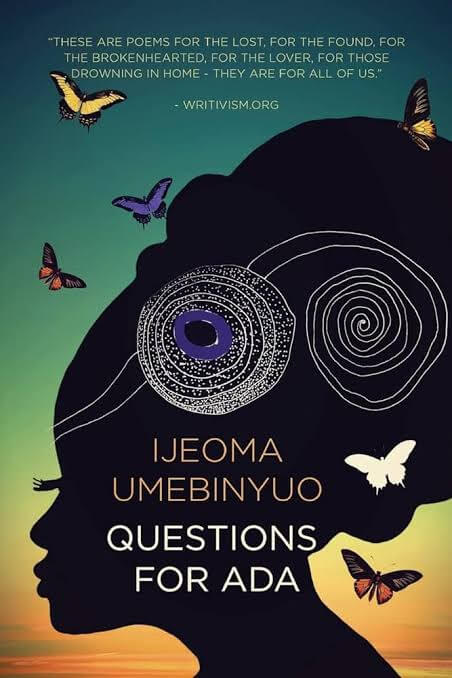
Choice quote: “Nobody warned you that the women whose feet you cut from running/ would give birth to daughters with wings.”
Questions by Ada is a devastatingly beautiful and powerful collection of poems that delve into the intricacies and multitudes of the female experience, womanhood, love, pain, cultural exploitation, identity, and so much more. Reading the poems in “Questions by Ada”—full of strength, vulnerability and pride, crafted with love and the full awareness of a woman who has seen how the world treats people who look like her, yet is still defiant, sees herself in transcendent glory, prepared to her presence count—will soothe and carry your feminine spirit. The authenticity of Umebinyuo’s words will linger with you, compelling you to recommend it to other women, just as I have. A raw, vulnerable, healing read, perfect for women’s month and beyond.
Butter Honey Pig Bread by Francesca Ekwuyasi
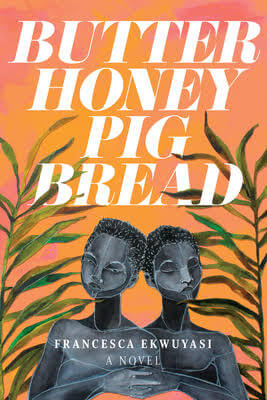
Choice Quote: “ I spent the summer cloaked in shame, seething with jealousy. I envied other women’s bodies. I envied fat women who draped their luscious curves without any embarrassment, thighs quaking as they walked. I envied thin women lounging effortlessly in T-shirts and shorts, nothing pinching or pudging, just smooth skin over smooth muscle over delicate bones. I envied anyone who didn’t hate their body. People who ate without hesitation or pre-emptive shame at how all those calories would stretch over their flesh. It was about beauty, yes, but it was also just about belonging. People treat you with kindness and an invitation to belong if they like the way you look.”
Butter Honey Pig Bread tells the story of a mother and her twin daughters—Kambirinachi, Kehinde and Taiye. Kambirinachi is an ogbanje/abiku, that is, a non-human entity so connected to the spirit world they are born into the earthly one, only to die in moments, leaving tragedy and tears in their wake. However, Kambirinachi makes the unnatural and defiant choice to stay alive. She gets married to a man who absolutely adores her, and when he dies, she alone raises twin girls Kehinde and Taiye, who are torn apart through horrifying trauma. After nearly a decade apart on 3 different continents, the family finds their way home to Lagos.
While “Butter Honey Pig Bread” spans years of generational trauma for its female protagonists, it manages not to be a dark story but one full of life, heart and hope.
The narrative is set in a gorgeous, lyrical tone, exploring themes of sisterhood, mother-daughter relationships, queerness, love, faith and food—yes, as the title implies, this delicious (pun intended) novel heavily uses food as a plot device. You can’t flip a couple of pages without a consistent appetite for all the Nigerian food beautifully described.
One of my favourite things about the novel was how its queer representation was so masterfully executed within the broader narrative. I appreciated how much of Taiye’s (my favourite of the twin sisters) personal struggles were unrelated to her queerness; her sexual orientation was simply a part of who she was.


